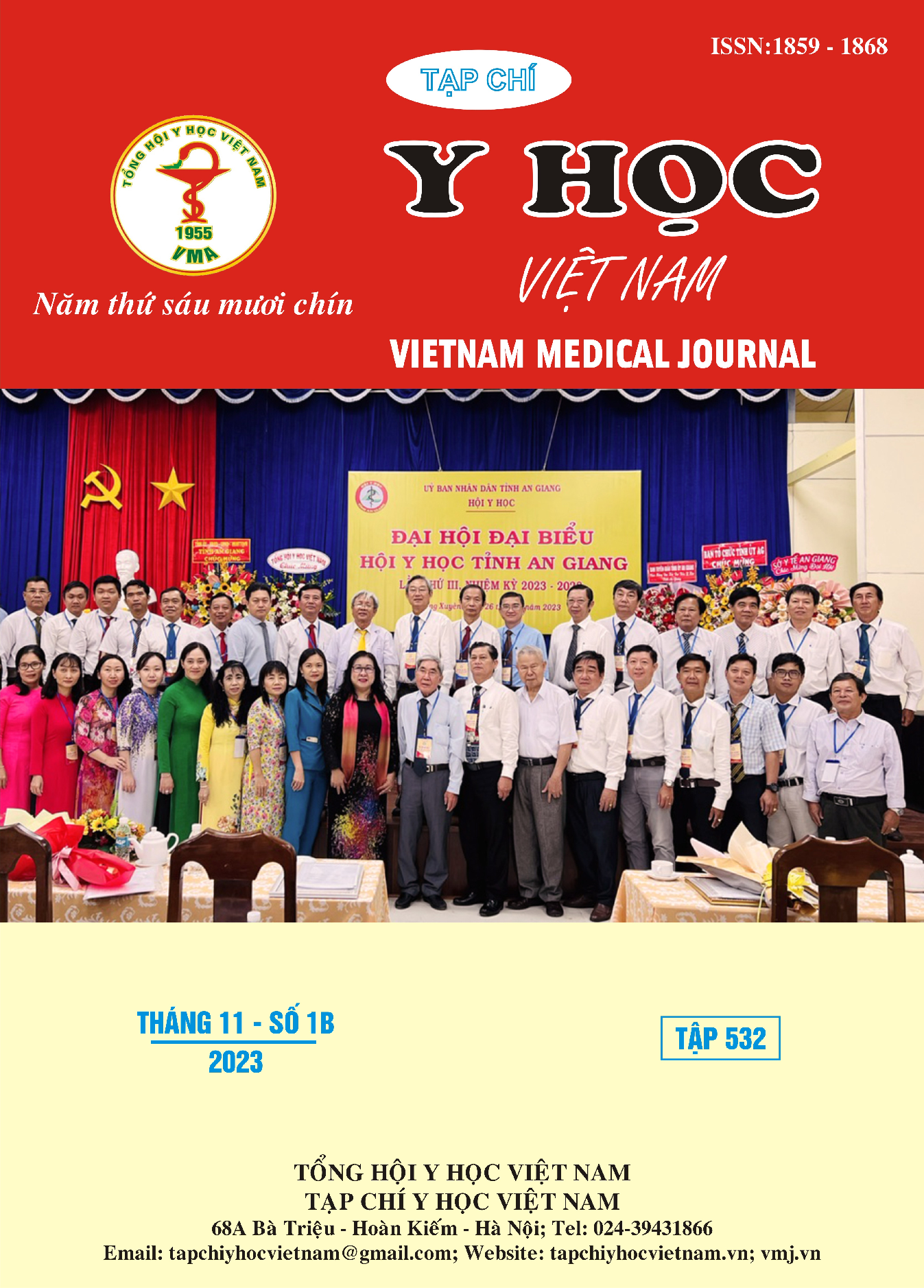THE CROSS-SECTIONAL SURVEY OF KNOWLEDGE AMONG MOTHERS REGARDING FEVER MANAGEMENT IN THEIR INPATIENT CHILDREN AT HA TINH CITY GENERAL HOSPITAL
Main Article Content
Abstract
Objective: Assess the knowledge of mothers having fever children treated at Ha Tinh City General Hospital. Methods: a cross-sectional study on 100 mothers of fever children hospitalized at Ha Tinh City General Hospital from April to September 2021. Results: Prevalence of Mothers who gave correct answers for the concept of fever, medication indications for fever reducer, and time interval for antipyretic were 56%, 58%, and 73%, respectively. There was 74% of mothers who believed that fever-reducing drugs can cause side effects. Most mothers obtained information about fever from medical staff (91%). When feeding their fever children, the majority of mothers believed that oral rehydration is necessary (79%). With seizure aid, the common mother’s methods were sending their child to the hospital immediately (25.3%), taking fever reducer (18.1%), loosening clothes (16.4%) and Others (with lower percentages). There was a correlation between the mother's education level and their knowledge on the time to use antipyretic drugs and the side effects of antipyretic drugs (p < 0.05). Conclusion: There is a correlation between the mother's education level and knowledge about the time to use antipyretic drugs and the side effects of antipyretic drugs (p < 0.05). It is necessary to actively propagate and educate on fever knowledge & fever management in children in the community.
Article Details
Keywords
fever knowledge, mothers of children with fever.
References
2. Lipa AthamnehMarwa El-Mughrabi et.al (2014). Parents' Knowledge, Attitudes and Beliefs of Childhood Fever Management in Jordan: a CrossSectional Study. Journal of Applied Research on Children: Informing Policy for Children at Risk. 5 (1); 8-12.
3. Shalam Mohamed Hussain, Osama Al-Wutayd, Ahmed Hamad Aldosary, et al (2020). Knowledge, Attitude, and Practice in Management of Childhood Fever Among Saudi Parents. Glob Pediatr Health. 7: 1-9.
4. Michael Crocetti, Bruce Sabath , Lisa Cranmer, et al (2009). Knowledge and Management of Fever Among Latino Parents. Clinical Pediatrics. 48(2), 183-189.
5. Đặng Thị Hà, Đoàn Thị Vân (2010). Kiến thức, thái độ, hành vi của bà mẹ có trẻ bị sốt cao đến khám tại Bệnh viện Phúc Yên. Tạp chí Y học Thành phố Hồ Chí Minh, 14 (4), 173-179.
6. Hồ Thị Bích, Doãn Thúy Quỳnh (2013). Tìm hiểu kiến thức và hành vi chăm sóc trẻ sốt của các bà mẹ có con nhập viện tại khoa Truyền nhiễm Bệnh viện Nhi Trung Ương. Tạp chí Điều dưỡng Việt Nam, Số 3, 69- 73.
7. Michael Crocetti, Bruce Sabath, Lisa Cranmer, et al (2009). Knowledge and management of fever among Latino parents. Clin Pediatr (Phila), 48(2):183-9.


